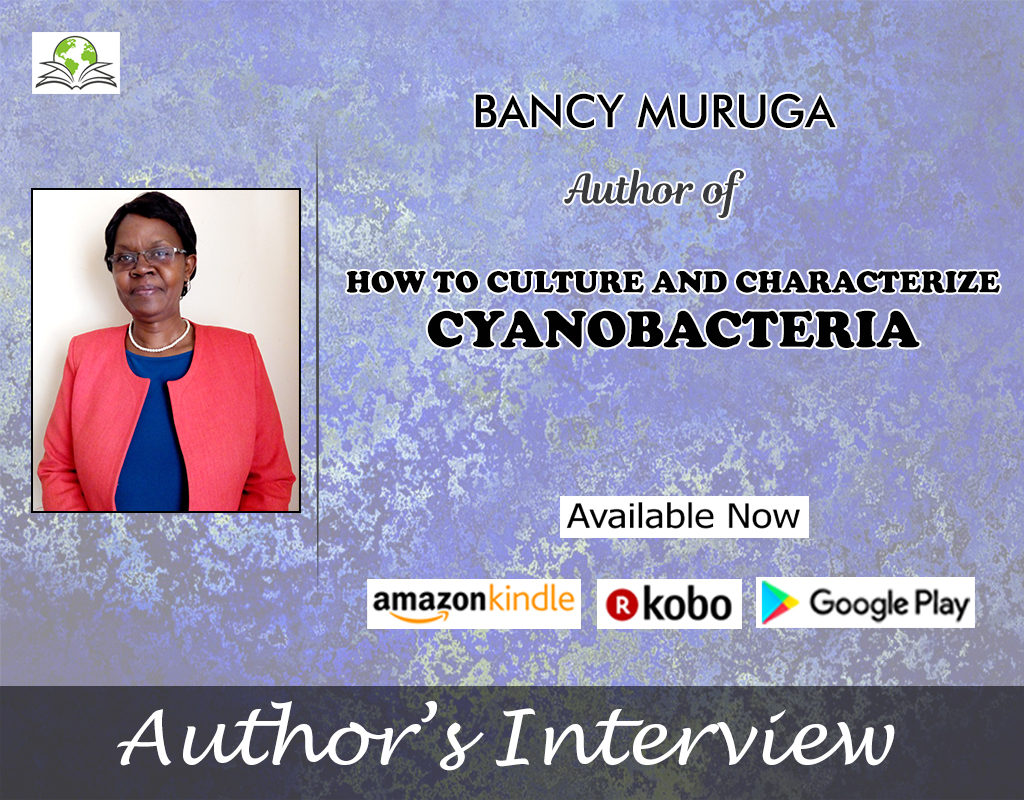Interview with Bancy Muruga
The entire team of ‘Exceller Books’ is highly thankful to you for allowing us to publish your book ‘How to Culture and Characterize Cyanobacteria‘. We congratulate you from the bottom of our heart on your latest book.
Q. Who or what worked as your biggest inspiration behind writing this book?
A. I worked with cyanobacteria for my doctorate. I lost a lot of time in the initial stages of my research trying to culture the cyanobacteria using protocols I got from literature. I eventually decided to design my own protocols. My inspiration for the book was the need to encourage researchers to not rely entirely on laid down protocols but to design their own where necessary. I also wanted to share the simple procedures I used to successfully culture cyanobacteria.
Q. When did you realize the significance of ‘cyanobacteria’ in the economic development of your country? Can you explain it a little bit for the average audience?
A. Lake Magadi which is a soda lake has little primary production because of the hypersaline, alkaline conditions leading to a relatively low biodiversity. Some cyanobacteria and other photosynthetic bacteria are able to survive in these conditions. If their growth in the lake can be enhanced they could serve as primary producers and help in establishing a normal ecosystem that would sustain the lake. An example is growth of spirulina, a cyanobacteria, which would attract flamingoes and then a cascade of other feeders.
Q. You have mentioned in your book that there are certain research gaps on ‘cyanobacteria.’ Would you please tell us why this is happening?
A. Relatively less has been done on cyanobacteria worldwide as compared to other bacteria. Cyanobcteria had been classified under algae for long until their cell structure was well studied to classify them as prokaryotic rather than eukaryotic. A lot of research particularly on use of cyanobacteria for their secondary metabolites needs to be done.
Q. Do you think that making the people aware of the importance of ‘cyanobacteria’ is enough to change the picture or should some other measures be taken?
A. Making them aware is a step in the right direction.
Q.Was there any external challenge you experienced in your journey of writing this book?
A. There was no external challenge at all. Response from the publisher was always prompt and positive.
Q. Are you going to write more books on science research or you want to try something different?
A. Am planning on writing a textbook to help learners in certain areas of biological sciences. I hope you handle this kind of books.
Yes, of course we would love to! We wish you all the best for your future and may you have a happy and prosperous career ahead.

